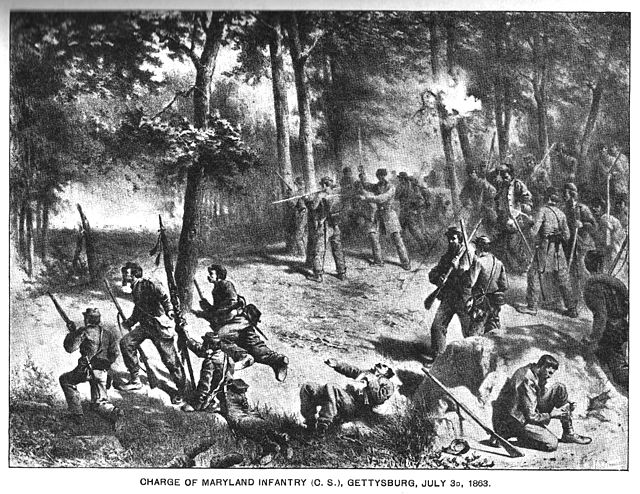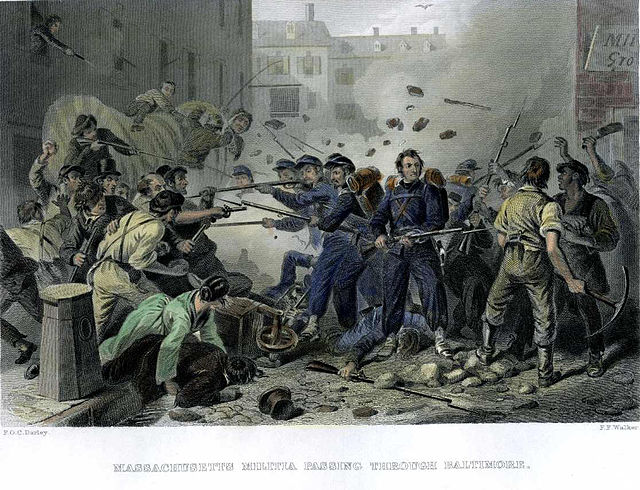The Maryland Line in the Army of the Confederate States of America was made up of volunteers from Maryland who, despite their home state remaining in the Union, fought for the Confederate States of America during the American Civil War. Of approximately 25,000 Marylanders who volunteered, most fought in the Army of Northern Virginia, and it was not until late in 1863 that a Maryland Line in the CSA was formally created. However, by this late stage in the war, few men wished to leave the units they had fought alongside for more than two years, and the exiles' dream of an independent Maryland Line in the Confederate army would never be fully realized.
Charge of the 2nd Maryland Volunteer Infantry Regiment into the "slaughterpen" at Culp's Hill, Battle of Gettysburg, July 3rd 1863. So severe were the casualties among the Marylanders that Brigadier General George H. Steuart is said to have broken down and wept, wringing his hands and crying "my poor boys".
Engraving of the Baltimore riot of 1861.
Jarvis Hospital was built on the grounds of Old Steuart Hall (visible bottom right) at the outbreak of the Civil War.
Bradley T. Johnson, one of those who led efforts to form a Maryland Line in the CSA.
George H. Steuart (brigadier general)
George Hume Steuart was a planter in Maryland and an American military officer; he served thirteen years in the United States Army before resigning his commission at the start of the American Civil War. He joined the Confederacy and rose to the rank of brigadier general in the Army of Northern Virginia. Nicknamed "Maryland" to avoid verbal confusion with Virginia cavalryman J.E.B. Stuart, Steuart unsuccessfully promoted the secession of Maryland before and during the conflict. He began the war as a captain of the 1st Maryland Infantry, CSA, and was promoted to colonel after the First Battle of Manassas.
Brigadier General George H. Steuart in Confederate uniform
Maryland Square, later known as Steuart Hall, c1868
Portrait of Brigadier General George H. Steuart
Charge of the 2nd Maryland Infantry, CSA into the "slaughterpen" at Culp's Hill, Battle of Gettysburg, July 3rd 1863. So severe were the casualties among the Marylanders that Steuart is said to have broken down and wept, wringing his hands and crying "my poor boys".







